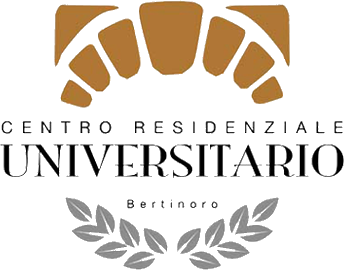| Course | The registration to the course is closed.
This registration is reserved exclusively to whom have applied for the ESHG fellowhips unsuccesfully.
Please do not register if you have not applied for the ESHG fellowship.
Your registration will be cancelled.
The course in Next Generation Sequencing (NGS) for Rare and Common Genetic Disorders is a 3.5 day-long postgraduate level course addressed to both researchers and clinicians seeking an up-to-date overview as well as hands-on experience with this revolutionizing technology and its impact in medicine today. It provides an overview of the technology and its applications in the mornings, complemented with afternoon workshops aimed at providing insight in the NGS-based identification and interpretation of genomic variations, combining clinical information with functional bioinformatics. The topics covered in this first edition are: Introduction to Next Generation Sequencing, Targeted versus Whole Genome Sequencing, Disease Gene Identification in Rare and Common Genetic Disease, Bioinformatic Variant Prioritization, High-throughput Functional Follow-up of Genetic Variation, Implementation in Clinical Diagnostic Practice, Ethical Issues. |
| Speakers | M. Hurles (Cambridge, UK)
R. Casadio (Bologna, Italy)
E. Dermitzakis (Geneva, Switzerland)
G. Matthijs (Leuven, Belgium)
J. Lunshof (Maastricht, The Netherlands)
A. Cambon-Thomsen (Toulose, France)
R. Hennekam (Amsterdam, The Netherlands) |
| Programme | Thursday, 14 April 2011
Morning Session: General Introduction
9.00 – 9.15 Registration to the course
9.15 – 9.30 Introduction to the course
G. Romeo
9.30 – 10.30 Introduction in Next Generation Sequencing technologies and applications
J. Veltman
10.30 – 11.00 Coffee Break
11.00 – 12.00 The power of population based genome sequencing
M. Hurles
12.00 – 13.00 Next generation sequencing in rare genetic disorders
P. Robinson
13.00 – 14.30 Lunch Break and tour of the Eremo di Ronzano
Afternoon Session: Learning NGS details part 1
14.30 – 16.00 Workshop: 1-2 instructors will discuss details of the different NGS technologies and explain different approaches such as targeted sequencing and detection of structural genomic variation.
Goal: to learn how to differentiate technologies (short vs long reads, targeted versus whole genome sequencing, single molecule sequencing)
16.00 – 16.30 Coffee Break
16.30 – 18.00 Workshop: Data-analysis hands-on using data from 454, solid, Illumina; learning to identify variants, discriminate true variants from noise
Friday, 15 April 2011
Morning Session: Applications
9.00 – 09.50 Rare Genetic Variants in Health and Disease (UK10k: http://www.uk10k.org/) also to discuss 1000 genomes project.
M. Hurles
09.50 – 10.40 Predicting the pathogenicity of genetic variation (bioinformatics)
R. Casadio
10.40 – 11.10 Coffee Break
11.10 – 12.00 Problems, pitfalls and limits
P. Robinson
12.00 – 12.50 The personal genome project
J. Lunshof
12.50 – 14.00 Lunch Break
Afternoon Session: Learning NGS details part 2
14.00 – 15.30 Workshops
15.30 – 16.00 Coffee Break
16.00 – 17.30 Workshops
17.30 – 18.00 Plenary Discussion
Workshops: Data-analysis hands-on workshop using data from 454, solid, Illumina focusing more on prioritizing variants for pathogenicity using control data, various genomic features and prediction tools, followed by discussion on the validity of these predictions, the importance of control data etc.
Saturday, 16 April 2011
Morning Session: Diagnosing genetic disorders
9.00 – 10.10 Impact of next generation sequencing on clinical diagnostic practice
G. Matthijs
10.10 – 11.20 Targeted versus whole genome sequencing in the clinic
J. Veltman
11.20 – 11.50 Coffee Break
11.50 – 13.00 The changing role of clinical geneticists in the NGS era
R. Hennekam
13.00 – 14.00 Lunch Break
Afternoon Session: Other NGS approaches/applications
14.00 – 15.30 Workshop on Consanguinity/Homozygosity analysis using NGS data
15.30 – 16.00 Coffee Break
16.00 – 17.30 Poster Session
17.30 – 18.00 Plenary Discussion
Sunday, 17 April 2011
Morning Session: Ethics and discussion
9.00 – 10.10 What’s next: High-throughput functional follow-up of genetic variation
M. Dermitzakis
10.10 – 11.20 Ethical and legal frameworks applying for personal genome data
A. Cambon-Thomsen
11.20 – 11.50 Coffee Break
11.50 – 13.00 Presentation of the best students posters and wrap up session organized by students
13.00 – 14.00 Lunch Break and Departure |

